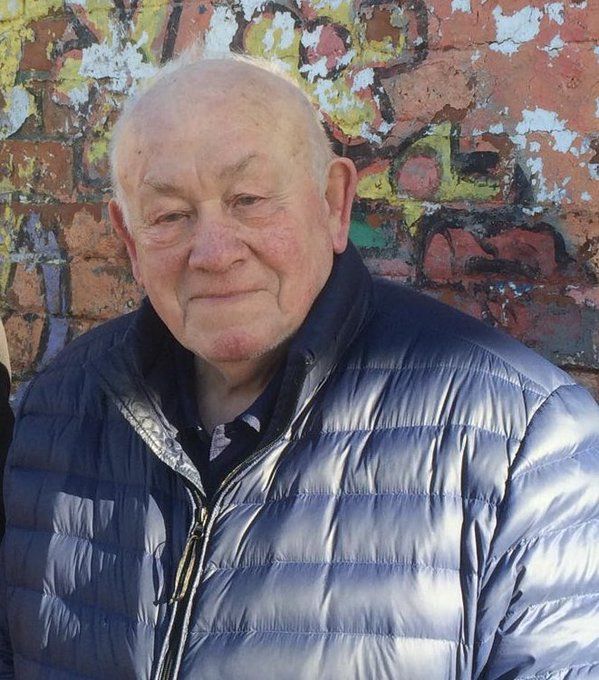"A great man and a great loss to the club," is how the late Joe Quinn has been described, following his passing on Friday morning, aged 92.
A man who was intrinsically linked with O'Donovan Rossa GAC, Quinn filled so many roles, but none more so than as a mentor to countless youngsters who walked through the gates at Shaw's Road or previously, Falls Park.
The tributes that poured in from within Rossa and beyond said it all as his influence on Gaelic Games in the city as the reverence he was held has been expressed far and wide.
Quinn began as a player with Rossa and finished as club president to cap a lifetime of service - his dedication to Gaelic Games and the development of young people impossible to match.
"It’s with deep regret we announce the passing of our club President, Joe Quinn," a post on Rossa's social media accounts read.
"A lifetime service to Rossa as player, coach, mentor, chairman and President.
"A stylish wing half-forward, he won a number of senior football championships in the 50s as well as hurling accolades. However, he will be best remembered for his relentless work with Rossa and south Antrim juvenile for over six decades."
Today we mourn the passing of a true giant of our Club, Joe Quinn.
— O'Donovan Rossa GAC (@RossaGACBelfast) January 10, 2025
Joe gave a lifetime service as player, coach, mentor, chairman & President.
He won championships in the 50s, before relentless work with Rossa & @GAASouth juveniles for over 6 decades. Ar dheis dé go raibh a anam pic.twitter.com/qCzongMDn1
A native of Sailortown, Quinn's family would relocate to the west of the city after the family home was destroyed in World War II. That would lead him to St John's Primary School where he was introduced to Gaelic Games by Liam Harvey - a teacher whom the Ulster Senior Hurling Championship trophy is named after.
Joe's older brother, Alec was a winner of 13-straight Antrim league titles with Rossa, so it was only natural he would follow his older sibling and in time, would graduate to the senior ranks where he won his first Antrim Championship in 1950, adding another few as the decade progressed.
By the end of his playing days, he moved into coaching, becoming something of a father figure for generations of Rossa players, and it is in this juvenile work where he is most remembered - his sharp wit matched by his work ethic as he became the ultimate role model to aspiring hurlers and footballers.
Alongside Pat McManus, they bucked the trend of young players not representing their club until U16 level by helping set up the Belfast street leagues in the 1960s, running teams out of Springfield and Ballymurphy, which helped feed players to the clubs.
While also serving as South Antrim Chairman, it was at Rossa where his passion lay and he helped develop young players for decade after decade, while serving every role on the committee with his club and was known to put his hand into his own pocket to ensure its smooth running - his late wife, Mary joked her husband's real marriage was to Rossa.
As the conflict raged in Belfast, the influence of Quinn ensured that many young people were kept off the streets and away from trouble, organising trips south for teams and his passion for the club saw him become an ever-present.
It wasn't just his mentoring skills that shone, but his knowledge of hurling which came to the fore as he formed part of the Antrim minor hurling coaching team which masterminded a Leinster Championship win over Kilkenny in 1980 with some of that team going on to play in the All-Ireland final of 1989.
"I don't think there was a kid who played for Rossa over a period of 40 years who hadn't been coached by Joe," said Chris McDonnell, current Rossa hurling manager who was one of many who benefitted from Quinn's guidance as a young player.
"When we won the 2004 Antrim Senior Hurling Championship, Seamus Shannon gave him a photo as every player on the team had been coached by him and that is a reflection of the work he put in. It was the same in '88 and all the way back.
"It's a huge loss and that's measured by the outpouring, not just in Rossa, but from other clubs who acknowledge the work he did in South Antrim and North Antrim.
"We'll never see the likes of him again."





